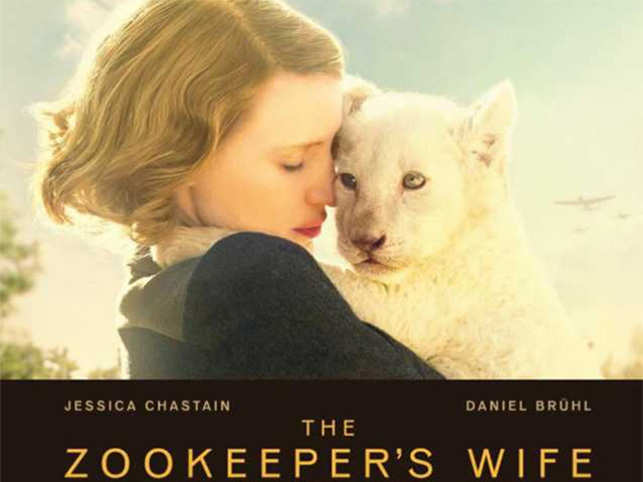
Credit to Chastain - she spends most of the film (quite reasonably) in or near to tears but presents Antonina’s strength and inner dilemmas with quiet conviction - but this tendency towards dualities feels a little reductive and lacking in nuance, not helped by a tendency towards moments of Notebook-style sentiment in the last half hour. The atmosphere of the film is misplaced and has an overall tone that doesn't belong. Based upon real life events that took place in Warsaw, Poland during World War II, this film fails to reach it's intended impact on the audience.

But his character more often serves as juxtaposition in another dichotomy - highlighting Antonina’s essential goodness. 'The Zookeepers Wife' poorly handles a beautiful and inspiring true story. Credit is due to Brühl and writer Angela Workman who, rather than make Heck the pantomime villain, hint at layers to his personality, shades of grey beyond the increasingly blackened surface. And, in keeping with the Nazis’ obsession with genetics, his pet project is attempting to breed the extinct ‘anroch’ back to life. Audience Reviews for The Zookeeper's Wife Based on a true story, The Zookeeper's Wife is a compelling World War II drama about the effort to rescue Jews from the Nazi Holocaust. Heck is drawn to Antonina - pre-war he was a fellow “animal lover” presiding over Berlin’s zoo, but post-invasion he becomes an increasingly brutalised member of Hitler’s regime whose work is based at the Zabinskis’ bombed-out zoo. Alexandra Macaaron, in Womens Voices For Change, gave the film a rave review, noting that The Zookeepers Wife is a rarity among Holocaust films, and is.


A recurring motif is that of the innocence of animals with the dark heart of humanity, here personified by, of course, the Nazis in general and Daniel Brühl’s Lutz Heck in particular.
#The zookeepers wife review plus#
The film provides some striking and surreal imagery - a wallaby bouncing down a decimated street, for example - yet over the two-hour plus running time, such blunt contrasts become distancing rather than engaging.


 0 kommentar(er)
0 kommentar(er)
